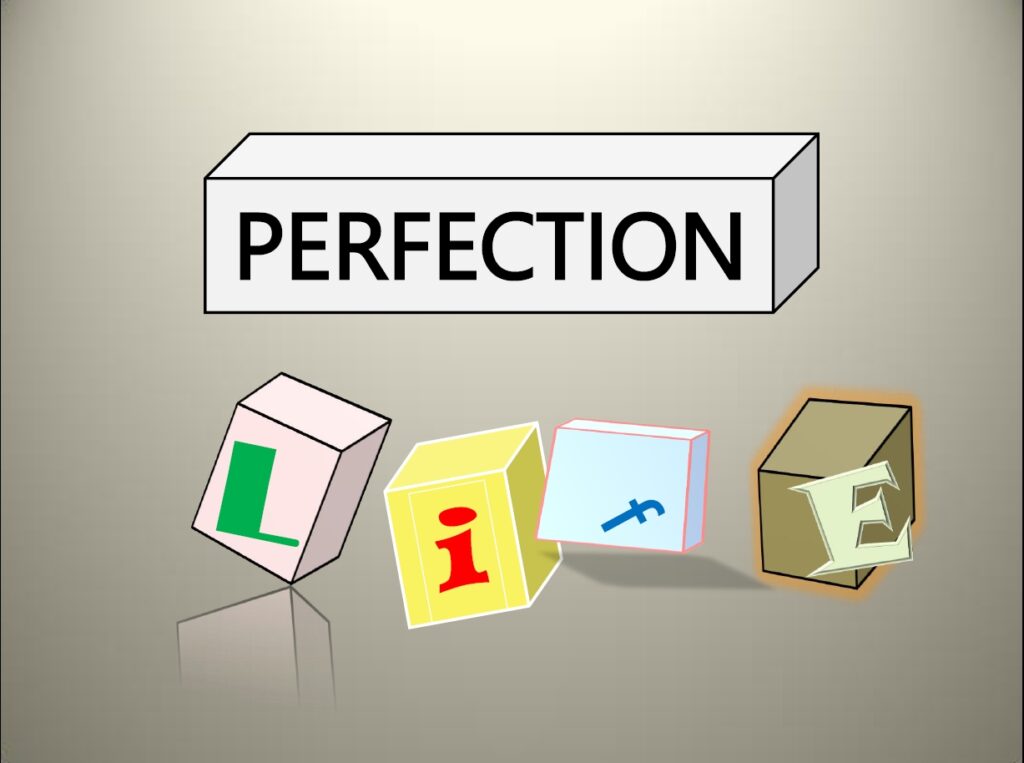Lots of anxiety sufferers share the trait of perfectionism – a desire (and repeated attempts) to get everything exactly right. We have a persistent feeling that if we could just get everything in the world just so, we would be able to relax and accept. The truth is the reverse of this: if we relax and accept things as imperfect as they are, then we find we are perfectly OK in our imperfect state.
The desire for perfection is a lost cause. We can’t exert that kind of control on the world around us, and even in areas where we do get things the way we want, time and external forces can undo these efforts quite quickly. So we are doomed to be in a continuous losing battle to get things straight.
Life and the Pursuit of Perfection
It’s important to recognize we can’t even achieve “perfection” in any single area of our life – our job, our home, our relationships etc. they are all messy. When we are sensitized, this messiness can be a source of frustration. We want to simplify our lives. We want them to be in order and easy to manage, and have difficulty dealing with the changes and fresh challenges that happen every day. Recovery involves learning how to roll with these challenges, and accept the imperfection and messiness in our lives, letting it all just happen.

Another aspect of perfection that causes stress is the almost constant comparison of ourselves with others. As anxiety sufferers we often look at other people and believe they cope perfectly and have their lives together. They seem happy, productive, carefree, and unfazed by the anxieties that torment us. We watch shows and see successful people. We connect on social media and see happy, successful, active, engaged people living lives we can only wish for, while we on the other hand are struggling with our anxiety, and struggling to function in the world, or perhaps even to get out of the house and face it.
Inevitably, we think to ourselves “Why am I not happy and successful like them?” “Why can’t I get back to who I used to be?” These questions of course yield no answers, and we simply become more and more miserable and depressed, resigned to being this way for the rest of our lives.
There are two things at play here. Firstly the idealized view we have of others is just that – idealized. Almost everyone portrays themselves and their lives in a better light than it really is. Most people are struggling with aspects of their lives such as work, relationships, finances, health etc., but this is not what they talk about or reveal on social media. What we see gives us a distorted view of the lives of others. So we are comparing ourselves to a fantasy. Secondly, comparisons of any kind are actually pointless and only serve to make us feel either superior or deficient – both of which are not truth but simply judgments.
Giving Up Being Perfect
Interestingly, when we give up the idea of being perfect, and instead accept ourselves as we are, we create an opening to be our authentic selves. As someone who has recovered from anxiety and perfectionism, I can say that this change came with such a relief of pressure, and such an unconditional love for myself AS I AM, it brought a HUGE improvement in the quality of my life. I found that I could be myself, make mistakes, take responsibility for those mistakes, and laugh at myself for being human. At the same time it opened me up to take more chances, accomplish so much more than I even knew was possible.
Having said that, there may be situations in life where perfectionism is of benefit to us, where doing a very high quality job is important or even crucial. But broadly in our day-to-day lives perfectionism adds unnecessary stress which detracts from our quality of life, makes us prone to anxiety, and makes any anxiety we have worse.
Recovery from anxiety requires giving up this desire for perfection, control and certainty, and embracing the imperfect, sloppy, ever changing world we actually live in.
It’s OK (and safe) to be human!
Practice letting go of the need to be perfect. Be open about your mistakes. Laugh at your imperfections. Embrace being a fallible human being. It will pay such great dividends.







